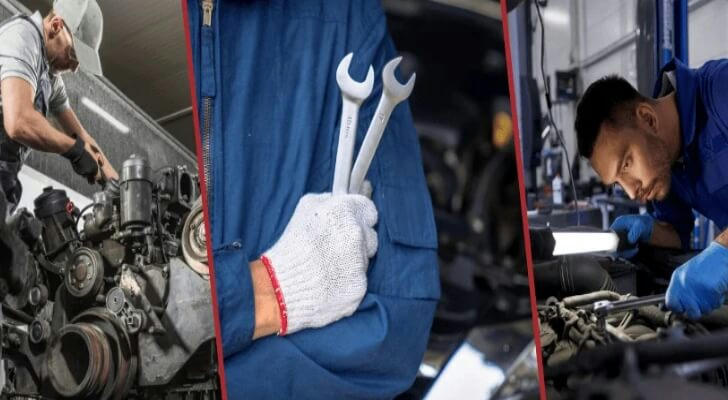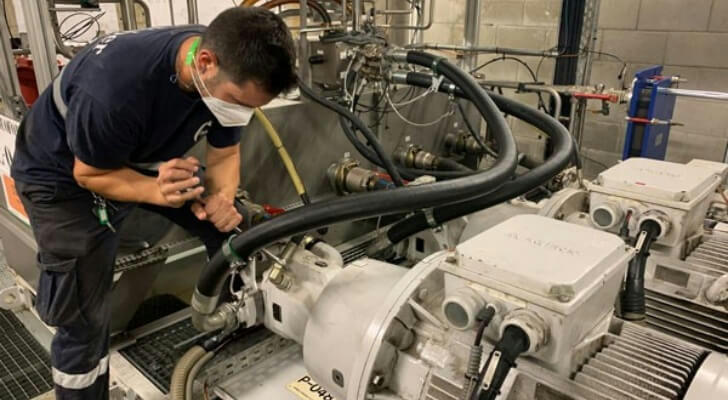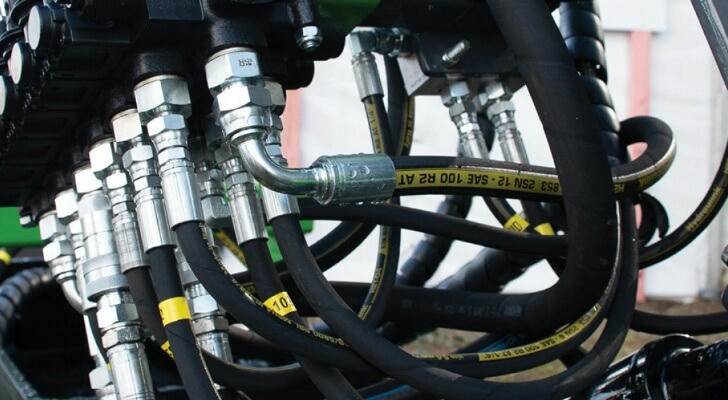Exploring the Mechanic Profession: Skills, Growth, and Real-Life Success Stories
The role of a mechanic is vital across various industries, from automotive and energy to manufacturing and construction. As technology continues to evolve, the responsibilities of a mechanic are expanding beyond traditional mechanical systems to include advanced robotics, automation, and electric vehicles. This shift is creating a wealth of opportunities for mechanics who embrace new technologies and continue to expand their skills. As the demand for highly skilled professionals grows, so do the career prospects in the mechanic field.

The Evolving Role of Mechanics in Modern Industries
Historically, mechanics were primarily responsible for repairing engines and machinery. Today, however, their role encompasses a much broader range of tasks, including the maintenance of sophisticated automated systems, robotics, and advanced electronic diagnostics. The rise of electric vehicles (EVs) and the increasing automation of production lines are reshaping the mechanic profession, requiring new skill sets and knowledge.
In particular, the automotive industry has seen a major shift towards EVs, with mechanics now needing to understand new systems, such as high-voltage battery maintenance, regenerative braking, and electric drivetrains. This transformation is not just limited to automotive sectors; industries like manufacturing and renewable energy are also increasing their reliance on mechanics to maintain cutting-edge systems, robots, and machinery.
Career Growth and Opportunities in the Mechanic Field
For many mechanics, career growth begins at the entry level, often as technicians or repair workers. However, there are ample opportunities to progress in the field by specializing in specific technologies, taking on managerial roles, or starting independent businesses. Mechanics who continue to develop their skills and embrace new technologies can accelerate their career growth and significantly increase their earning potential.
Real-Life Example: John Williams – From Technician to Senior Engineer
John Williams began his career as a technician at General Motors (GM) in Detroit, working primarily on traditional internal combustion engines. As GM shifted its focus to electric vehicles (EVs), John recognized the need to learn about new technologies in the automotive industry. He enrolled in GM's internal training programs on EV technology, which included courses on battery systems, electric drivetrains, and regenerative braking.
John’s decision to specialize in EV technology paid off when he was promoted to Senior Maintenance Engineer. In this role, he oversaw a team that maintained GM’s EV models, ensuring the vehicles were properly serviced and troubleshooting any technical issues. He also contributed to the integration of new electric vehicle technologies into GM's production lines. Today, John is a key player in GM’s EV strategy, and his career continues to evolve as he takes on new challenges in the growing EV sector.
John’s story highlights how proactive learning and adapting to industry trends can significantly impact a mechanic’s career trajectory. His success shows that mechanics who embrace new technologies and seek out additional training can rise to high-level positions within their companies.
Real-Life Example: Maria Gonzalez – From Mechanic to Service Manager
Maria Gonzalez began her career in an automotive repair shop in Austin, Texas, where she worked on a variety of vehicles, including traditional gasoline-powered cars. As hybrid and electric vehicles began to enter the market, Maria saw an opportunity to expand her knowledge and set herself apart in a competitive field. She took courses on hybrid vehicle technology and automotive electronics, learning how to diagnose and repair these complex systems.
As her expertise grew, Maria became the shop's go-to technician for hybrid and electric vehicle repairs. Her ability to handle the latest automotive technologies led to her promotion to Service Manager, where she now oversees a team of 15 mechanics. Maria manages the daily operations of the shop, ensures quality control, and interacts with customers to solve complex vehicle issues.
Maria’s career progression demonstrates that with continued education and the ability to adapt to new challenges, mechanics can transition from technical roles to leadership positions. She is now responsible for managing the business side of the shop while maintaining her technical expertise in the rapidly evolving automotive industry.

Practical Steps for Advancing Your Mechanic Career
Mechanics who wish to advance in their careers should focus on a few key areas:
1. Pursue Specialized Certifications
Certifications in emerging technologies, such as robotics, electric vehicles, and renewable energy systems, are critical for career advancement. Mechanics who complete certifications in these fields are more likely to be considered for higher-level positions. For example, John Williams was able to transition into a senior role at GM by obtaining specialized certifications in electric vehicle maintenance.
2. Gain Hands-On Experience
Practical experience is crucial. Mechanics should actively seek opportunities to work on new technologies, such as hybrid and electric vehicles, automated systems, and advanced robotics. This hands-on experience will not only make them more valuable to their employers but also increase their chances of career advancement.
3. Develop Leadership and Management Skills
Mechanics who aspire to take on leadership roles should invest in courses or training that improve their managerial skills. Leadership training can help mechanics transition from hands-on roles to supervisory or managerial positions, like Maria Gonzalez did when she became a Service Manager. Learning about team management, customer relations, and business operations is just as important as technical expertise.
4. Network and Seek Mentorship
Networking with other professionals in the field can provide valuable insights and career opportunities. Joining industry associations, attending conferences, and seeking mentorship from experienced mechanics can help open doors to new roles and provide guidance on career decisions.

Overcoming Challenges in the Mechanic Profession
Despite the many opportunities, the mechanic profession presents several challenges. The work can be physically demanding, requiring mechanics to lift heavy equipment and work in uncomfortable environments. Mechanics also face mental challenges, as diagnosing and repairing complex systems can be stressful, especially when working under tight deadlines.
The continuous advancement of technology means that mechanics must continually learn new systems and stay up-to-date with the latest developments in their field. For example, as automation becomes more prevalent, mechanics will need to troubleshoot and maintain automated production lines, which requires a deep understanding of both mechanical and electronic systems.
Safety is another critical aspect of the profession. Mechanics work with hazardous materials and heavy machinery, making adherence to safety protocols essential. Proper training and the use of personal protective equipment (PPE) are crucial for minimizing workplace accidents.
The Future of the Mechanic Profession
Looking ahead, the mechanic profession will continue to evolve as industries embrace automation, robotics, and sustainable technologies. Mechanics who stay current with emerging trends, such as electric vehicles, renewable energy systems, and industrial automation, will be in high demand.
As industries rely more on automated systems and green technologies, the need for skilled mechanics to maintain and repair these systems will only grow. Mechanics who invest in their education and adapt to these technological shifts will be well-positioned for long-term career success.

Conclusion: A Career Full of Potential
The mechanic profession offers a dynamic and rewarding career with numerous opportunities for growth. Mechanics who stay up-to-date with new technologies, pursue relevant certifications, and develop leadership skills can transition into specialized or management roles. The stories of John Williams and Maria Gonzalez demonstrate that with the right skills and mindset, mechanics can build successful careers in an ever-changing industry.
For those looking to grow in the field, it’s important to continue learning, seek out new challenges, and be proactive in adapting to technological changes. By doing so, mechanics can not only secure their future but also play a key role in shaping the industries they serve.
